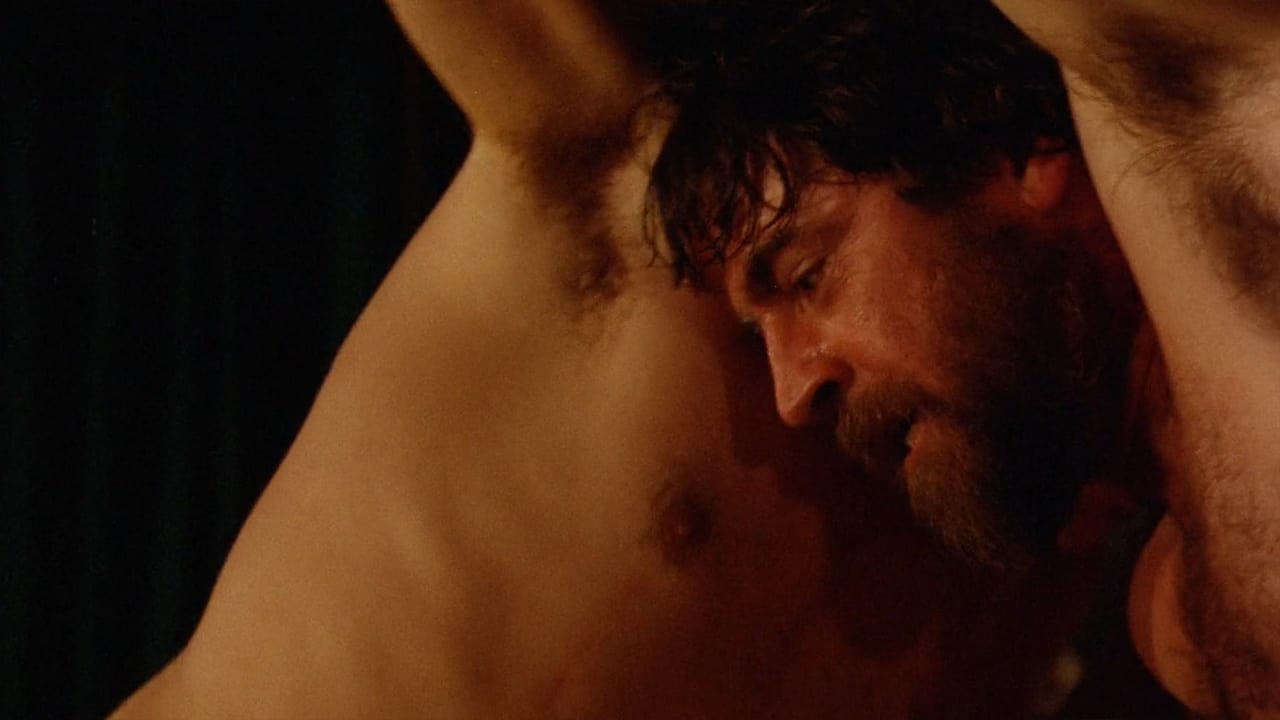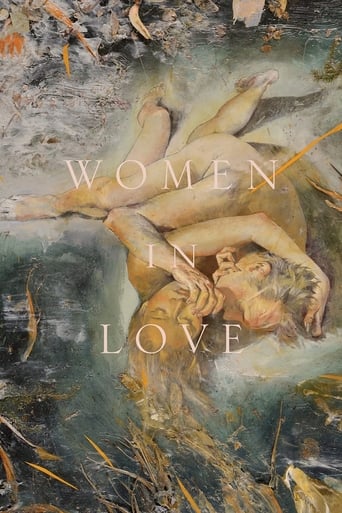

Stylish but barely mediocre overall
... View MoreI like movies that are aware of what they are selling... without [any] greater aspirations than to make people laugh and that's it.
... View MoreGreat example of an old-fashioned, pure-at-heart escapist event movie that doesn't pretend to be anything that it's not and has boat loads of fun being its own ludicrous self.
... View Morewhat a terribly boring film. I'm sorry but this is absolutely not deserving of best picture and will be forgotten quickly. Entertaining and engaging cinema? No. Nothing performances with flat faces and mistaking silence for subtlety.
... View MoreSisters Gudrun Brangwen (Glenda Jackson) and school teacher Ursula Brangwen (Jennie Linden) belong to the upper crust society of England's industrial Midlands during the 20's. Ursula falls for the philosophical Rupert Birkin (Alan Bates). Gudrun is taken with his best friend Gerald Crich (Oliver Reed) who ruthlessly runs his father's coal mine. This is high art erotic romanticism based on D. H. Lawrence's novel. There are some great work from director Ken Russell. I especially love the one cut from the post-coital Ursula-Rupert to the dead lovers. There is the homoerotic wrestling scene pushing the envelop. The performances of Glenda Jackson and Oliver Reed are superior. It does run a bit long which is not unusual among the films of that era. Overall, it is a superior work of high art erotica of the British upper class.
... View MoreKen Russell's overly precious screen version of the D H Lawrence novel "Women in Love" is all tactile sensuality and much naked abandonment, not to mention a hell of a lot of high flautin' dialogue courtesy of producer Larry Kramer. It was a huge hit when it came out, (the nudity may have helped sell it), and won the then unknown Glenda Jackson an Oscar as Best Actress. The problem I have with her, and indeed everyone else for that matter, is they aren't playing flesh and blood people but just aspects of Lawrence. There are several great set-pieces that might convince you that you are watching a real film and it's superbly photographed by Billy Williams but ultimately it's a very patchy piece of work that just doesn't live up to its reputation.
... View MoreThose who write scripts based on "classic novels" often complain that huge amounts of the text/scenes has to be junked in order to make it fit within the standard two hour movie window. This, I suppose, is why a television series can often be more satisfactory. Think Brideshead Revisited. However with D.H. Lawrence there is so many idle, superfluous and repeating scenes that a major trim usually does his work a power of good. No more so than here, where a pretty draggy and average novel is turned into a really excellent film, mainly thanks to the quality of the acting.The introduction gives way to the belief that this is will be a standard boy-meets-girl-behind-the-slag-heap soap opera, but we quickly enter the world of madness, ambiguity (sexual and otherwise) and passion. This is cinema aimed at adults and makes no compromises to popcorn fashion. Only Ursula Brangwen (Jennie Linden) seems truly satisfied by the conventional male-female relationship.In most reviews this is the point where we talk about the naked wrestling scene and Glenda Jackson's Oscar. While both are noteworthy, Jackson (playing Ursula's sister Gudrun) seems simply a selfish thrill-seeker who many actresses could play. In many ways the late Oliver Reed (Gerald Critch) is more outstanding in appearing, in turns, both intimidating and tender. A far better actor than many give him credit for, this may be his best ever role.The equally late Alan Bates (Rupert Birkin) has slightly the easier role. Someone with wants to explore the boundaries of love, probably beyond the pale of heterosexuality. Quite how and why are not spelled out and the audience can read him in many ways. A bored thrill seeker or a pioneer to world without standard sexual and emotional boundaries? Whatever the case, clearly a man living before his natural time.Director Ken Russell does very well here. While getting bit overheated at times, he keeps the show on the road and moving forwards towards its sad and unsatisfactory (for the characters) ending.
... View MoreAt first glance, Ken Russell's "Women in Love" may look like one of the many movies exploring the new permissiveness of the silver screen (and in fact it got released around the same time as "Bob & Carol & Ted & Alice"). But it is also important to pay attention to its focus on England's class system. In my opinion, probably the most effective scene is during the opening credits, as Gudrun (Glenda Jackson) and Ursula Brangwen (Jennie Lind) - both dressed in fancy aristocratic clothes - walk through an economically depressed neighborhood, barely if at all moved by the poverty surrounding them. Of course, it's hard not to remember Rupert Birkin (Alan Bates) and Gerald Crich (Oliver Reed) fighting each other. That scene probably goes to show the falsity of the rich English lifestyle: they act like these refined individuals, but the whole time they're ready to explode. Back when D.H. Lawrence wrote the novel, he probably never guessed that the movie would look like this.All in all, this is certainly one that I recommend. I often say that the period from about 1967 to 1973 saw some of the greatest movies released, and this backs that up. Also starring Eleanor Bron (the woman in "Help!") and Michael Gough (Alfred in the Batman movies from 1989 to 1997).I've never heard of people cutting open figs and eating only the inside. I've always just eaten the whole fig.
... View More